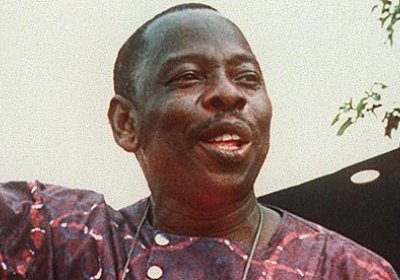On November 22, the Australian Greens launched their updated renewable energy plan Renew Australia.
The plan improves on their 2013 Clean Energy Roadmap, which was light on detail, merely calling for the Renewable Energy Target (RET) to be raised to 90% by 2030, more funding for the commercialisation of renewable energy technology and improved coordination and planning of the electricity grid.
Mining
On November 27 the ABC published documents showing that the Queensland Coordinator General plans to extinguish native title over parts of the proposed Carmichael mining site in the Galilee basin and give the freehold to Adani.
The document said: "The Moray Downs Land acquisition includes the takeover of native title rights and interests of the Wangan and Jagalingou people to allow for the leasehold land to be converted to freehold.
 “We, the developing countries, are dignified and sovereign nations and victims of a problem that we didn’t cause.”
This statement was made six years ago, the Bolivarian Alliance for the Peoples of Our America (ALBA) at the Copenhagen Climate Conference.
“We, the developing countries, are dignified and sovereign nations and victims of a problem that we didn’t cause.”
This statement was made six years ago, the Bolivarian Alliance for the Peoples of Our America (ALBA) at the Copenhagen Climate Conference.
On November 10, it was 20 years since Ken Saro-Wiwa, president of the Movement for the Survival of the Ogoni People (MOSOP), and eight other Ogoni leaders were hanged by Nigaria's military dictatorship in Nigeria.
Known as the Ogoni Nine, their crime was demanding a share of the proceeds of oil exploitation.
The Niger Delta covers a huge area of some 27,000 square miles on Nigeria’s southern coast. Once almost all tropical rainforest, it has one of the highest levels of biodiversity on earth and is home to 31 million people. Ogoniland comprises 400 square miles in the eastern delta.
If we needed any further proof that our politicians are "fossil fools", despite recent leadership changes, look no further than the responses made by the Prime Minister and federal resources minister to the call for a moratorium on new coalmines by the President of the Pacific island nation Kiribati, Anote Tong.
Marx & Nature: A Red & Green Perspective
By Paul Burkett
Haymarket Books, 2014
Marx and Nature is a challenging, but very important book for all those concerned with developing and acting on the ecological insights in Marxist theory.
Australia's offshore oil and gas authority, National Offshore Petroleum Safety and Environmental Management Authority (NOPSEMA) has rejected BP's application to drill for oil in the Great Australian Bight on the grounds that its “environment plan does not yet meet the criteria for acceptance under the environment regulations”.
NOPSEMA had earlier said BP needs a comprehensive risk assessment and a comprehensive oil pollution emergency plan.
Environment groups have welcomed the passage of legislation on November 12 that restricts sea dumping and port expansion in the Great Barrier Reef heritage area as a victory for people power.
The Queensland Land Court has begun hearing objections to the expansion of New Hope Coal's Acland Stage 3 coalmine in the Darling Downs, one of Australia's richest agricultural and pastoral regions.
There are 27 objectors to the mining lease applications and 35 objectors to the draft Environmental Authority.
The objectors include Oakey Coal Action Alliance, Darling Downs Environment Council, Clean Air Queensland and many local farmers concerned about the impact the coalmine expansion will have on the sustainability of their operations.
Should the climate movement call for the restoration of a safe climate, rather than just zero emissions?
According to a recent paper, Striking Targets, by climate writer Philip Sutton, greenhouse gas concentrations are already too high to avoid dangerous global warming, so the zero emissions goal is inadequate.
The appointment of nuclear power advocate Alan Finkel as Australia's next Chief Scientist led to speculation that the federal government might be softening up Australians for the introduction of nuclear power.
But that speculation is likely misplaced. Finkel is not the first Chief Scientist to support nuclear power. It goes with the turf: boys like toys and Chief Scientists like nuclear power. Finkel's comments were actually quite nuanced and at least as supportive of renewables as nuclear power.
With the Paris climate talks just around the corner it is timely to consider what effective policies to cut emissions might look like. Nationalisation and direct public investment are key policies that have historically been “bread and butter” political demands both for socialists and for the more radical voices within social democratic parties.
Climate activists from the Greens and Labor Environment Action Network should revisit these ideas, as they are a useful alternative to the dead end that is carbon trading.
Direct public investment
- Previous page
- Page 19
- Next page










